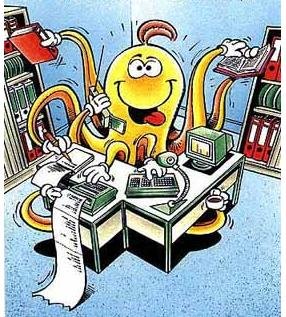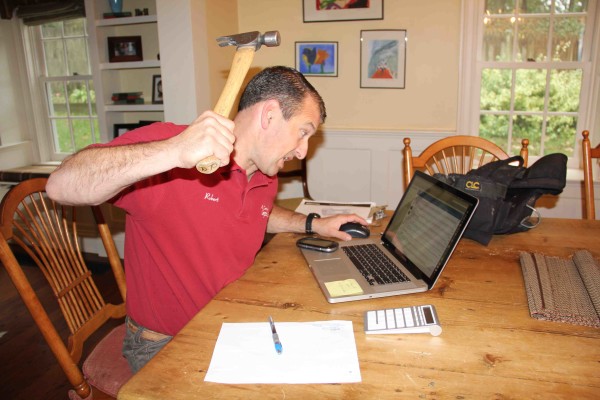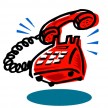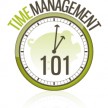Time Management
How To Manage Your Time Better
Spend your time doing the important things!
Make a To- Do List:
- Spend 30-minutes making a to-do list, do this first thing in the morning or the night before.
- List them in order of importance first.
- Write down deadlines for accomplishing certain tasks; for carpentry projects I sometimes attach hours to each item and try to keep to that estimate.
- Anything not accomplished is usually at the end of the list, is less of importance and goes on the next day list.
- If that item makes it to three or four days, still on the list, I delete it under the guise that it can’t be that important.
Sync and Use Your Calendar:
Organize your calendar and use it, make sure all of your devices are synced up – this is critical. To get started, I plug in family, vacation time first and also my lunch breaks. Many studies show that people who take a designated lunch break are more effective and have less stress.
Once those important items are in my calendar I start filling it in with work stuff. don’t forget to schedule time to check and respond to calls and emails, and consider color coding like-minded activities or time off.
When working at my desk, I schedule time to return calls and check email – 3x daily. this eliminates the need to answer immediately and get distracted.
I find that the weekly view setting on your calendar is the BEST view for proactive planning and I try to follow a 60/40 rule of scheduling, which means that 60% of my time is scheduled with 40% left open for flexibility.
Designate Time:
Get up an 1/2 hour earlier or stay up a 1/2 hour later to read the paper, check emails, surf Internet, etc. These are all huge time sinks ~ consider scheduling them on your list.
Handle Emails and Paperwork Once:
Paperwork, checking e-mail, checking voice-mail, paying bills, typing estimates, etc., are incredible time drains. Going paperless is one approach, but processing paper more effectively is what really gives you control. I use the 3-F’s for emails and paperwork;
- File
- Forward [delegate]
- Forget [delete]
When filing I use broad, generic headings to generate and file with fewer file folders. I make sure to use specific titles and add a date to the end of each file title. [e.g., Robillard Deck Scope 01.01.2016]
Using technology like email and specialty software, such as, accounting software, and online banking [paperless] to save you time.
Stay Focused:
- Don’t start another task until the first one is done ~ not always easy for me, I’m huge at getting sidetracked.
- Try to eliminate distractions; emails, texts, phone, t.v, etc. [ I turn off email when working on a project]
- Turning the email off while working on a project is a huge one for me and probably the biggest distraction I have when using my computer. Email as well as social media like Facebook is a big one for most people as well.

Image: www.themillionairesecrets.net
Keep Moving:
- The saying, “Get Er Done” applies here. Stay on task until complete. This is difficult when the task at hand is not a fun one. Once you finish you’ll have more time for yourself later in the day!
Break it Down into Parts:
- If the task seems huge or overwhelming, break it down into small, manageable parts.
- Complete one task at a time before moving to another. Before you know it you’ll be well into the task or DONE!
Delegate:
Delegation, done properly, plays to your teams strengths, develops team members, provides ownership and allows fresh perspectives. It frees up the bosses time and allows more time for executive development, organizational awareness and time to get stuff done!
If you delegate, follow these 4 easy steps:
- Tell Them: this means setting an expectation, results, scope of authority, budget and time-frame
- Show them: train and model behavior or tasks. Training can take time, do you have it?
- Watch them: Observe and support, with the goal of self-instruction
- Evaluate Them: Provide feedback and future focused direction
Tip: People often we delegate the “process” rather than the “result.” You need to instruct adequately, and then DEFINE THE RESULT in order to delegate effectively.
Manage Your Phone Disruptions:
Answering the phone constantly can reduce your effectiveness. Practice not answering the phone just because it’s ringing and e-mails just because they show up.
Not all of us have the luxury of an assistant or phone service but having someone screen your calls is a very effective way to stay focused.
Other approaches involve;
- Using caller ID
- Rescheduling another time to chat
- Scheduling a time to answer email and return phone calls
- Creating a voice mail telling people to leave detailed messages, asking them to tell you when the best time is to return their call, or and stating in your voice mail when you will return calls. [E.g., “please leave a detailed, specific message and the BEST time to call you back.”]
Create Productive Meetings:
Meetings are part of business and I truly believe that Herbert V. Prochnow was correct when he said, “A committee of three often gets more done if two don’t show up.”
If you are in charge of setting up the meeting, consider this:
- Have a focused agenda: share it 24 hours before your meeting
- Schedule and enforce a begin and end time. [I like 30 minutes to 1 hour]
- Have the right people present [decision makers / experts]
- Keep minutes for the meeting
Say No!
You cant please everyone and “No” is sometimes the best answer. Be ok with it and get comfortable saying it.
Summary:
Having no time is a huge excuse, I hear all the time. Remember by prioritizing you will be able to focus on what you do best. y following some of these tips, and , controlling interruptions you can reduce the stress of “constant urgency,” and that “where does the time go” feeling.
Oh yeah, don’t forget to continue to get better, not only through continued education, but use your time in the car to listen to audio-books and other podcasts to keep your mind and skills sharp!










